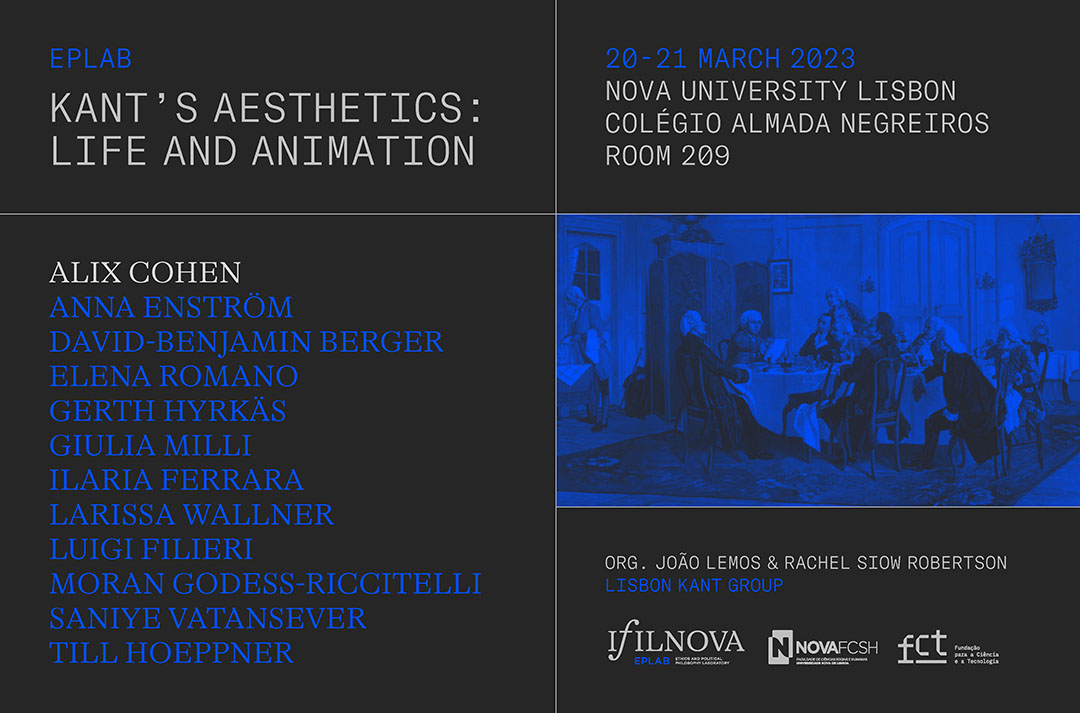Kant’s Aesthetics: Life and Animation

20-21 March 2023
NOVA University Lisbon, Campus de Campolide
Colégio Almada Negreiros, Room 209
Keynote speaker
Alix Cohen (University of Edinburgh)
Theme
The feeling of life (das Lebensgefühl) is a central concept in Kant’s aesthetic theory. Indeed, Kant begins the Analytic of the Beautiful by indicating that in the judgment of taste “the representation is related entirely to the subject, indeed to its feeling of life, under the name of the feeling of pleasure or displeasure” (KU, 5: 204, §1). In the Analytic of the Sublime, he adds that the beautiful “directly brings with it a feeling of the promotion of life”, whereas the feeling of the sublime “is a pleasure that arises only indirectly, being generated, namely, by the feeling of a momentary inhibition of the vital powers and the immediately following and all the more powerful outpouring of them” (KU, 5: 244-245, §23).
Similarly, the closely related notions of animation (Belebung) and animating (beleben) are central to Kant’s account. He repeatedly speaks of the animation of the mind or the cognitive faculties, and in one section of the Critique of the Aesthetic Power of Judgment, namely §49, he writes of the spirit as the “animating principle in the mind”, as well as of the “animation” of the soul, works of art, and ideas of reason (cf. KU: 5, 313-317, §49).
In comparison with other topics that occupy recent secondary literature on Kant’s aesthetics, studies of the feeling of life and the related notions of animation and animating are of a relatively small number. Among the few studies which focus on (or make interesting mention of) these notions, influential accounts include Choi & Cohen (2021), Fugate (2018), and Makkai (2021), as well as Caygill (2000), Makkreel (1990), and Zammito (1992).
It is the main aim of this conference to consider the roles that the feeling of life, as well as the related notions of animation and animating, play in Kant’s aesthetic theory.
Org.
João Lemos (NOVA University Lisbon)
Rachel Siow Robertson (University of Cambridge / The Faraday Institute for Science and Religion)
More information at kantaesthetics.weebly.com.

